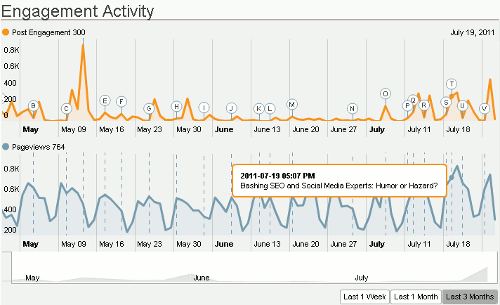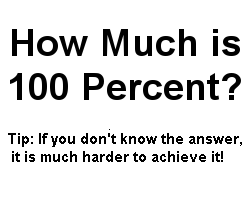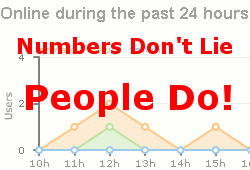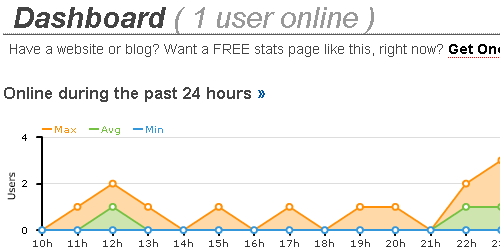
I could sit here at my computer all day and tease people who are willing to take on small contracts in the field of SEO and social media marketing, or the clients willing to pay them. Many of those clients are broke, and there are a lot of bad people with an SEO and social media flag waving to attract the last of their money.
Giving them a hard time can be very fun, but it is not really all that productive. After all, there is a huge majority of small businesses who seek somebody to help them, but do not have the needed resources for a grand entrance to the online market. There are also some talented marketing minds who like working with small or short-term contracts. I prefer to help bring them together.
I don’t accept those contracts, but not because I am an arrogant jerk who thinks he knows it all. I don’t arbitrarily look down upon those companies, and I don’t automatically look down upon the people serving them. It is just not my market, and I turn away business every day because of this.
If you accept small projects in SEO and social media marketing, I have some free leads for you. I don’t mean just a bunch of shabby sales leads from people hoping to spend an hour of research online to find a free website that will earn them a squillion dollars. I mean real companies hoping to make an entrance to their market.
This does not mean that I am a bad option, or that I am expensive. I return huge profits for my clients, and I am worth many times my rates. It also does not mean that you are bad, or “cheap”. We all have our market space here, and mine is in long-term and well-funded strategic projects. In fact, you can use me as an example to show your potential clients that you are not just trying to rip them off. It really does cost a lot of money and work to create success. Bigger success takes bigger experience, bigger money, and bigger strategy. Those are the projects I accept.
I believe that we both have a similar challenge of building confidence in customers. I even expressed some troubling truths only a few days ago in a long-winded article about a short-sighted customer who has done business with me for years. Check it out for yourself: “Marketing ROI Factor: Are You a Client or a Customer?”
In reality, the upfront cost of an optimal campaign in SEO or social media is prohibitive for the majority of companies. Sure, if they could pony up the money for a well-researched campaign, they could turn over their investment at a much higher velocity. As it is, they will have a higher opportunity cost by cutting corners, but that is often the only option. It is an option that you may be able to deliver.
Even when the cost is not the biggest hurdle, putting money into an online marketing campaign is a damn scary proposition for many companies. Even when and if they can swing the money, they will dip their toe in to check for sharks before they go swimming. It is frequently not the best option, but it is a popular option. Again, it is an option that you may be able to deliver.
People probably ask you a lot of questions about this industry. You will sometimes need a third-party resource to help make your point. I am happy to help you ease their tension, and to help them make better decisions. My blog is always here, and there is a lot of useful information in my archive. I don’t even want a finder’s fee to send paying customers your way, or to help you explain the benefits of SEO or social media marketing to your customers. Not at all, because if you have a small budget to work with, the last thing you need is to spiff me with money.
I love spiffs, but I prefer to pay them rather than receive them. Reference my article earlier this year titled “SEO and Social Media Reward: $5,000 for Introduction“. Yes, I really do prefer to pay you a $5,000 finders fee than for you to pay me a hundred. I am a money-spending madman like that. 😉
The Caveat … Yes, The Fine Print
The first thing to do is add your comment here on this article.
Of course, I don’t just want every cockroach in the Twinkies dumpster to hold out their hand for a free crumb. I want to hear from people who actually have a quality value proposition. The big catch is that for each person with their hand out, I will be watching. Yes, I will be looking at you, and judging you. I intend to provide a small degree of vetting. If I like what I find, I may put a spotlight on you in a follow-up article.
Because we are talking about people who looked to me for help, I am not about to mess up my reputation by referring them to somebody who will rip them off. I will watch my server logs to see how much and how long you have read my work. If you have been reading, and if you have subscribed, it is far more likely that we share similar principles. I will also notice if you have been a blog troll or lurker. If you are a non-communicating type of person, start communicating, and stop hiding in the shadows if you want my referral business.
Very Important: I will notice whether you are honest with your comment, and with your communications elsewhere on the Internet.
I welcome you to add your comments to explain your value. Feel free to spam all you like. If you seem spammy to me, I have a delete button for that. I tend to react pretty abruptly to people who annoy me. For example, don’t even think about commenting with your favorite keywords in place of a name. I am looking for people … real people with real names … who want more business.
The upside of my offer is that if you are legitimate, I would like to help my readers with appropriate options, and for us to possibly work together for mutual benefit. I am serious when I say that I want quality people to refer small project business to. If you are good and honorable, we may work together a lot in the future.
I have assembled a phenomenal team for producing massive success, but there never seems to be enough marketing talent to trust with the smaller projects.
I would also ask that in the event that you are ever over your head, that you consult me. You may find that you have enough resource to help that whale of a client after all.
Although it may seem hard to turn away a client only because of their budget, there are minimums I simply don’t work below. For more thought-provoking articles on the cost of SEO and social media marketing, and perhaps help with explaining cost to your clients, I offer the links as follows:
- “How Much Does SEO Cost?” is The Wrong Question
- Enterprise SEO Services: How Enterprise Justify SEO Cost
- Social Media Marketing Pricing Like Cab Rides by the Pothole
- Hourly Rate for Setting Up Social Media Profiles?!
- How Much Does a Website Cost?
- SEO and Web Development Hourly Rates
- Marketing Cost vs. Marketing Value
- Websites As Low As $175,000 + $25,000 Monthly Maintenance
- Where Does Marketing Talent Come From and What is the Cost?
Photo Credit:
Broken Piggy Bank by Images_of_Money via Flickr
Podcast: Play in new window | Download












